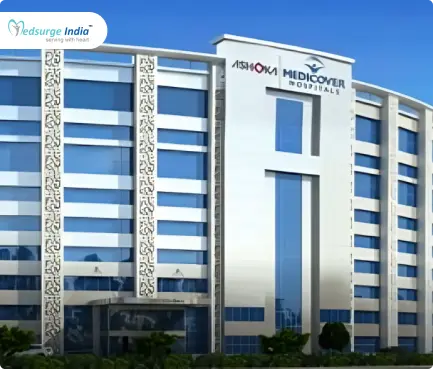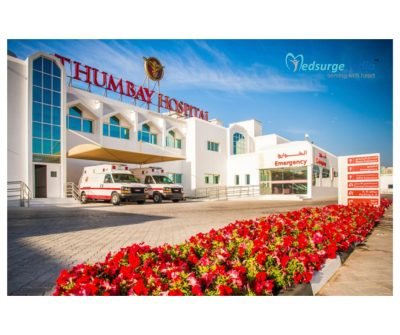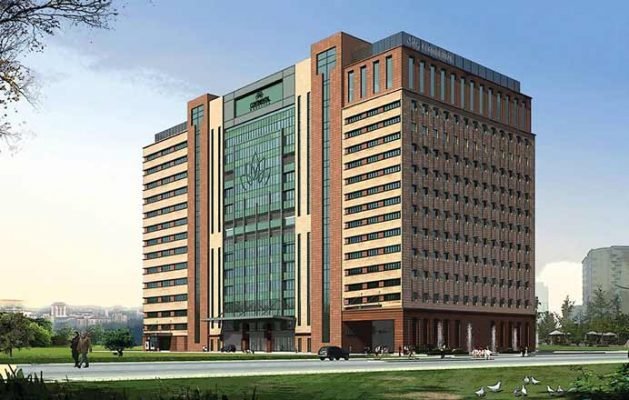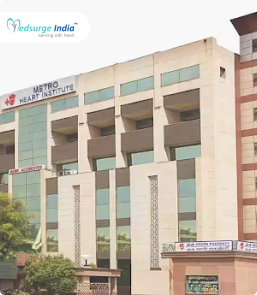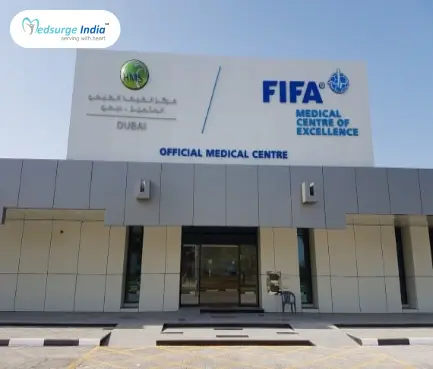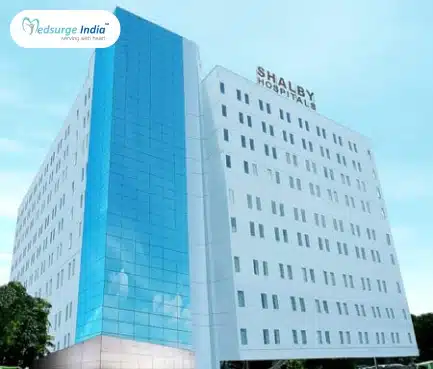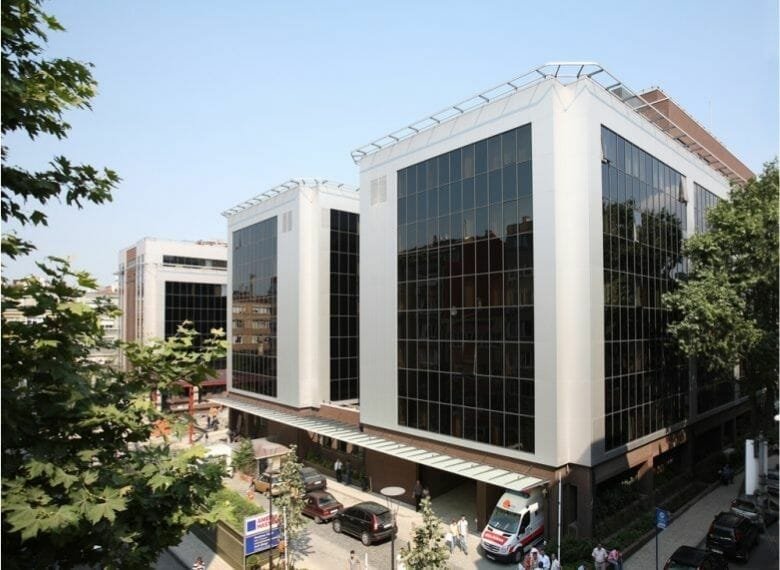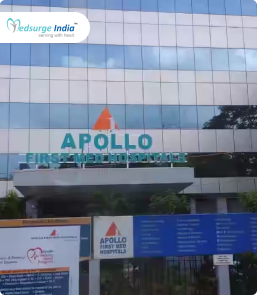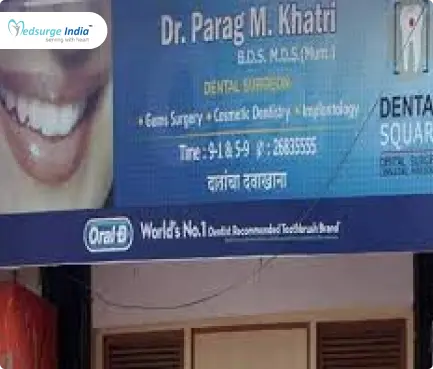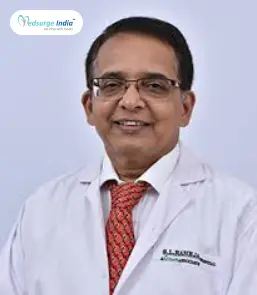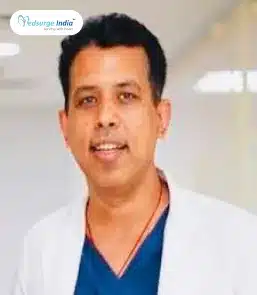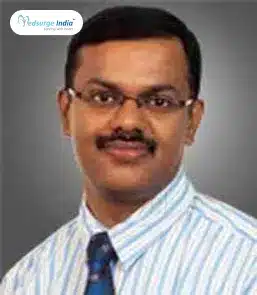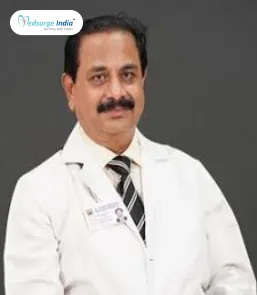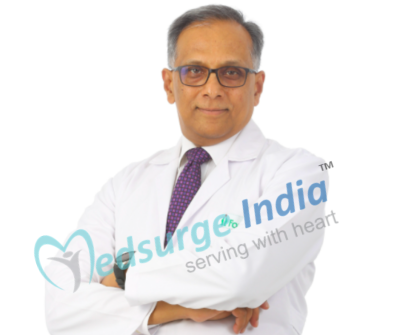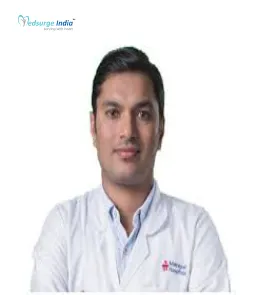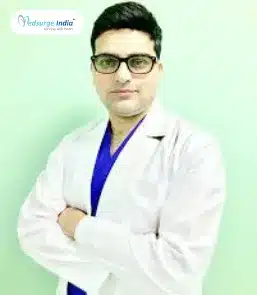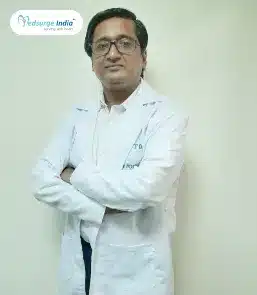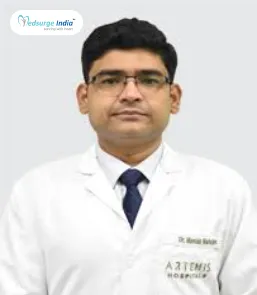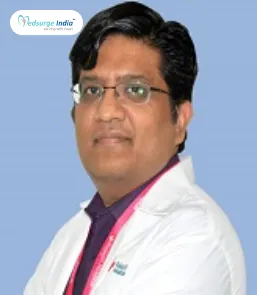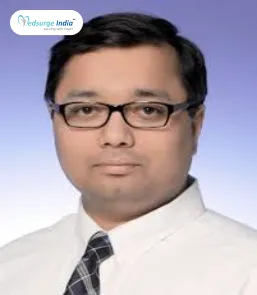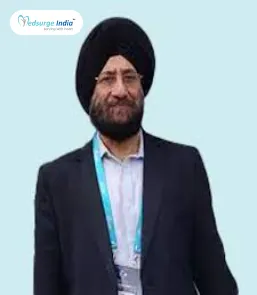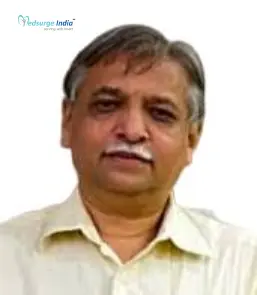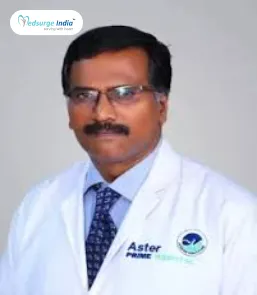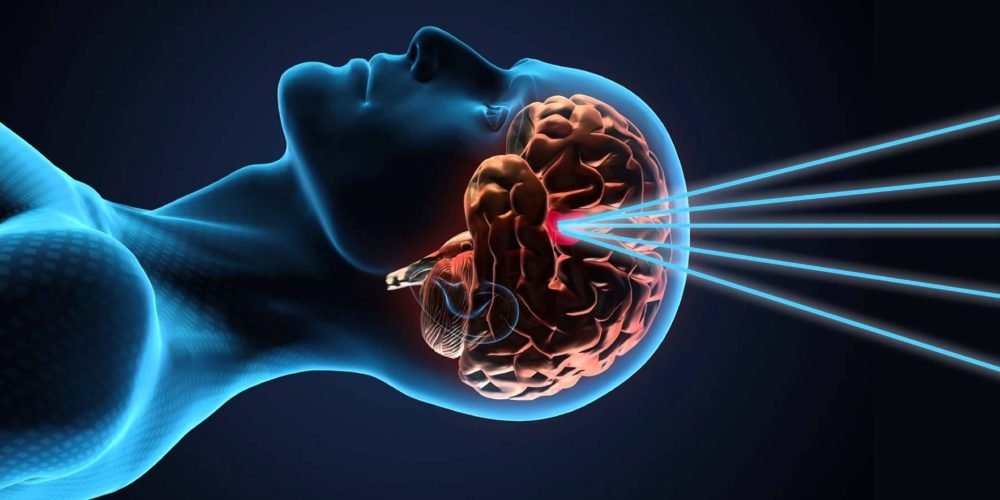
Gamma Knife Surgery is one of the most popular tumor treatment treatments. Radiation is used in this method to kill tumors without endangering the surrounding healthy tissues. Because it is so little intrusive, this method is very effective.
In India, there are numerous multispecialty hospitals and institutions with a focus on treating cancer that offer gamma knife surgery. The use of blades or scissors is not necessary for this minimally invasive radiosurgery. The recuperation is therefore swift. This is one crucial factor that enables candidates who are not healthy enough to have surgery to undergo Gamma Knife radiosurgery without experiencing discomfort.
In comparison to other countries, Gamma Knife for Brain Tumor Cost in India is extremely reasonable. The success can be attributed in part to the advanced medical equipment used in Indian hospitals and the surgeon’s expertise. Along with these advantages, India’s low cost without lowering clinical standards is a significant contributor to its global popularity.
Gamma Knife Surgery In India
Treatment for brain tumors, vascular malformations, and other anomalies in the brain using the gamma knife involves radiation and computer-guided planning. This technique, despite its name, does not involve any incisions, not even a skin incision.
The Gamma Knife is a device that employs extremely focused gamma ray beams to treat a lesion or tumor. It is mostly utilized in the brain. The gamma radiation beams deliver an extremely powerful dose of radiation to a very small area without the need for an incision. Radiosurgery kills cells, preventing them from proliferating. Over time, a lesion or tumor will get smaller.
Gamma knife radiosurgery is referred to as surgery because the results are comparable to removing a lesion through surgery. With little impact on neighboring healthy tissue, the radiation beams are precisely directed to approach the lesion.
Who Is A Suitable Candidate For Gamma Knife Surgery?
Surgery with a gamma knife can be used to treat:
- Malignant and benign brain tumors, in particular those that are inaccessible before or after standard brain surgery,
- Tremors, such as essential tremors or Parkinson’s disease-related tremors
- Acoustic neuromas, or tumors that grow around the inner-ear nerves known also as vestibular schwannomas,
- A condition that affects the nerves in the face is trigeminal neuralgia.
- Brain blood vessel tangles or vascular anomalies.
Due to the significant risk of radiation exposure, people who have many brain tumors or lesions may not be ideal candidates for Gamma Knife surgery. Gamma Knife surgery could be one of several treatment options for you, or it could be the best one given the hazards of the alternatives, depending on your health situation. Some people who have tried alternative treatments without success may discover that gamma knife surgery is an option.
A doctor will assess your treatment options, explain them to you, and go through any potential side effects if you are a candidate for Gamma Knife surgery.
Gamma Knife Surgery Cost in India
Gamma Knife Surgery Cost in India ranges from USD 6200 to USD 6800. It typically includes necessary preoperative tests, consultation with the doctor, the patient’s condition, and the surgery itself. However, please note that accommodation and transfers are not included in this cost.
- The beams focus on the target tissue and deliver its effect during a single procedure lasting 15 to 70 minutes.
- No hospitalization is required for Gamma knife but the patient should expect to stay 3 days outside the hospital.
- Tests required before Gamma Knife are MRI, Blood Tests, CT Scans or Cerebral Angiogram.
Cost of Gamma Knife for Brain Tumor in Different Cities in India
| Cities | Starting Price |
| Delhi | USD 6200 |
| Gurgaon | USD 6200 |
| Noida | USD 6200 |
| Mumbai | USD 6400 |
| Hyderabad | USD 6200 |
| Chennai | USD 6300 |
| Kolkata | USD 6200 |
| Bangalore | USD 6500 |
Note: Keep in mind that the above-mentioned cost provided is solely for the treatment. The overall cost of Gamma Knife for Brain Tumor in India will be determined based on several factors.
Factors That Can Affect Gamma Knife Surgery Cost in India
There are various factors that can affect the cost of Gamma Knife for Brain Tumor in India. Here we have listed you with the various factors that can affect the cost of Gamma Knife for Brain Tumor in India.
- Patient Condition: The complexity of the disease along with the patient’s overall health can affect the duration of treatment, impacting the cost.
- Medication costs: Certain medicines can influence the overall cost of Gamma Knife for Brain Tumors.
- Duration of treatment: Longer treatment courses involving multiple visits can lead to higher cumulative costs.
- Geographical location: Cost can vary widely depending on the region in India.
- Hospitalization expenses: The length of hospital stay and the level of nursing care required by the patient can add to the treatment expenses.
- Government policies and subsidies: Government healthcare schemes and subsidies can reduce out-of-pocket expenses for patients, affecting the affordability of Gamma Knife for Brain Tumor.
- Medical tourism packages: Curated packages for international patients can include various services at a bundled cost, influencing the overall expense of treatment in India.
- Hospital reputation and infrastructure: Prestigious hospitals with state-of-the-art facilities may charge more for their services.
- The expertise and experience of medical professionals: Neurosurgeon with extensive experience and recognition often command higher fees, contributing to the treatment cost.
- The type and frequency of diagnostic procedures: Regular monitoring with advanced imaging and laboratory tests can increase treatment costs due to the high price of these diagnostic methods.
- The choice of treatment modality: Opting for newer or more advanced treatment options or precision medicine can be more expensive than traditional approaches.
India provides excellent medical services and facilities for patients seeking treatment, including Gamma Knife for Brain Tumor. These facilities are on par with renowned healthcare centers around the globe. Additionally, the cost of accommodation, meals, and transportation is also included. Moreover, international patients can save a significant amount, up to 30-40%, on the expenses of gamma knife for brain tumor cost in India compared to their native countries.
What Happens Prior To The Gamma Knife Procedure?
Medical Evaluation
- Your neurosurgeon takes a thorough medical history and physical examination. You might have to take further tests.
- Inform your doctor if you have a heart pacemaker, a brain aneurysm clip, an implanted medication pump, a nerve stimulator, metal implants, metal from trauma, a cochlear implant, spine stabilization hardware, severe lung disease, esophageal reflux, or if you are unable to lay flat on your back for 30 to 60 minutes.
- Inform your healthcare practitioner of any pharmaceutical allergies or sensitivities, as well as any sensitivity to latex, tape, contrast dyes, iodine, or general or local anesthetic agents.
Food, beverage, and medication
- The night before your surgery, avoid eating or drinking anything after midnight (just for AVM treatments).
- On the morning of your treatment, take your morning pills with sips of water. All of your medications, including prescribed and OTC, as well as inhalers, should be brought with you.
Helpful – Know Everything About Craniotomy Surgery | Craniotomy Risks
Get Free Cost Estimation
Procedure
During The Procedure
The following actions will normally be taken during a gamma knife procedure:
- You’ll be transported to a pre-procedure room as soon as you get to the hospital. You will be asked to take off your clothes and put on a hospital gown by the care team. It’s possible that you’ll also need to have a tiny amount of your hair cut close to the radiation location, although it’s not usually necessary.
- You will receive a stiff head frame fitting. The radiation beams are directed where they should go thanks to this gadget. Four local anesthetic injections will be given by a doctor during this fitting. The locations where the head frame is fastened will become numb as a result.
- You’ll be given an IV. The team will be able to provide contrast dye for imaging examinations as a result. Additionally, they might administer sedatives or general anesthesia to you.
- The doctors will use a CT or MRI scan to collect measurements once the head frame is in place. The three-dimensional image that will direct the Gamma Knife procedure will then be created. They will decide which regions of the brain to treat, how much radiation to administer, and how to approach the desired region of the brain.
- The head frame will be fixed to a table once the treatment strategy is decided.
- The table is slid into the Gamma Knife device. The medical staff will vacate the room but keep cameras rolling the entire time. Through an intercom, they will be able to communicate with you.
- The therapy often lasts between one and two hours, but it occasionally may only last for about 30 minutes. If necessary, it may also take up to three or four hours.
- The head frame and IV are taken out after the procedure, and the table glides out of the machine. After that, you’ll be sent to a rehabilitation area.
After Procedure
Recovery is substantially faster with Gamma Knife surgery because it is not actually surgery. You should be prepared for the following:
- In the recovery area, nurses or other healthcare professionals will apply an antibiotic ointment and clean the pin sites on your head with hydrogen peroxide.
- In order for the staff to monitor your recuperation, you will remain in the room for at least 30 minutes, if not longer.
- You will typically be released on the same day. You won’t need to spend the night unless there are issues.
- After the operation, you have 48 hours to shampoo your hair. But until the pin sites are completely healed, you will need to keep them clean and treat them with an antibiotic lotion or ointment.
Complications of the Procedure
There may be:
- Swelling of the brain leads to symptoms such as headache, nausea, and vomiting
- Fatigue may occur for a few weeks
- Your scalp may be red, irritated, or sensitive at sites where a device is attached to your head during the treatment
- temporarily loss of hair where treatment is directed
- numbness
- seizures
- loss of balance
- vision problems
- Radiation exposure during pregnancy may lead to birth defects
Why do Individuals Prefer to Have Gamma Knife for Brain Tumor in India?
The country has some of the best medical care facilities and services in Asia, making medical tourism in India very popular. The best Hospitals for Gamma Knife for Brain Tumor in India provide all types of disease-related surgeries using advanced technology. Also, the price of a Gamma Knife for Brain Tumor in India is much more affordable as compared to other states or nations around the world. An international patient can expect to pay 50-60% less for Gamma Knife for Brain Tumor in India.
The best Gamma Knife for Brain Tumor in India provides comprehensive appropriate treatment, including comprehensive pre-operative evaluations, minimally invasive surgical options, and post-operative rehabilitation programs. Patients can expect personalized treatment, individualized attention, and compassionate care at these medical facilities. Top international organizations accredit the hospitals, including the National Accreditation Board for Hospitals and Healthcare Providers (NABH) and the Joint Commission International (JCI).
How to Choose a Hospital for Gamma Knife for Brain Tumor in India?
Treatment using Gamma Knife for Brain Tumor in India Hospitals is renowned for its services in patient care and hospitality. These hospitals have some of India’s top surgeons who are experts in their professions. For an international patient, selecting a good hospital for treatment might be challenging. It is a crucial choice that needs to be made while keeping a number of things in mind, such as:
- Quality certificates and accreditations
- Hospital and transportation facility location
- Team of doctors and surgeons
- Advanced diagnostic and therapeutic equipment
- International patient assistance
How Can Medsurge India Help
Medsurge India is a prestigious support system for patients looking for doctors, hospitals, and specialized treatments. We’ll find the most suitable medical options for you. Following your medical issues, our team will give you a list of certified, reputable, and trusted doctors and hospitals. Apart from that, we offer a treatment strategy that fits your budget and also, we assist patients with obtaining travel authorizations, medical visas, and a multitude of other things.
Helpful –
Top Neurosurgeons in India
The Most Important Frequently Asked Questions
Q: What Are the Advantages of Gamma Knife Radiosurgery?
A: The Benefits are:
- It’s non – invasive surgical therapy.
- Frequently performed when a tumor or other abnormality in the brain is too difficult to achieve with regular neurosurgery.
- When an individual is not fit enough to undergo regular surgery.
- Radiation simply kills abnormal cells while sparing normal tissue.
- The recovery period from gamma knife therapy is minimal.
Q: How Does Gamma Knife Radiosurgery Work?
A: Gamma Knife radiosurgery uses specialized equipment to concentrate about 200 little beams of radiation on a tumor or concentrated place within the mind. Thus providing an extremely intense dose of radiation with no surgical incision or opening. It hastens or destroys the DNA of tumor cells, causing them to be not able to replicate and develop. The tumor will shrink in size as time passes.
Q: Is Gamma Knife Radiosurgery Safe?
A: Gamma Knife radiosurgery is preferable to many existing processes since patients don’t undergo risky, open-skull processes with long hospitalization.
Q: Why Is Gamma Knife Called Surgery?
A: Gamma Knife radiosurgery is known as”operation” because outcomes very similar to a real surgical procedure are made with a one-session radiation therapy treatment.
Q: What Are Warning Signs After the Procedure?
A: The warning signs are:
- severe headache that is not relieved by medication
- any weakness, numbness, or vision problems increasing after the procedure
- continued bleeding or another drainage from the pin sites
- seizures
Q: What Are the Results Observed After Gamma Knife Radiosurgery?
A: Outcomes are usually seen over a time period following the process. In instances of tumors, the target would be shrinkage of tumor and also protect against any future tumor development, in circumstances of AVMs the treatment induces AVMs to thicken and shut. In Trigeminal neuralgia, it blocks the transmission of pain signals.
Q: What Are the Types of Radiosurgery?
A: There are three main types of radiosurgery:
Gamma Knife Radiosurgery- using cobalt as a source for gamma rays. During Gamma Knife treatment, the equipment does not move.
Linear Accelerator (LINAC) systems- use high-energy x-rays to treat a tumor or other lesion. LINAC systems also differ from the Gamma Knife in that the machinery moves around the patient during treatment.
Proton Beam Therapy or Cyclotron- Proton beam therapy is a type of particle beam radiation therapy that uses particles such as protons or neutrons.
Q: What Is the Success Rate of Gamma Knife Radiosurgery?
A: The operation is ideal for smaller glands, and achievement rates vary with the kinds of tumors. Success rates can be as large as 70 to 90 percent.
Top Hospitals for Gamma Knife Surgery in India
Top Doctors for Neurology And Neurosurgery
Dr. Ravi Shankar
Associate Director
Experience: 19 years of experience
Medanta – The Medicity, Gurgaon
Gurgaon, India
Dr. Anand Kumar Saxena
Head of Department , DM
Experience: 26 years of experience
Venkateshwar Hospital, New Delhi
New Delhi, India
Dr. Raghuram G
Senior Consultant
Experience: 9 years of experience
Manipal Hospital Whitefield Formerly Columbia Asia Bangalore
Bangalore, India
Dr. Shailesh A V Rao
Head of Department
Experience: 30 years of experience
BGS Gleneagles Global Hospitals, Bangalore
Bangalore, India
Dr. Bhanu Kesavamurthy
Director
Experience: 30 years of experience
Kauvery Hospital Formely Fortis Hospital, Vadapalani
Chennai, India
Dr. Manish Raj
Consultant
Experience: 12 years of experience
Max Super Speciality Hospital, Patparganj, New Delhi
Noida, India
Dr. Sudipta Bhattacharya
Senior Consultant
Experience: 22+ years of experience
Narayana Multispeciality Hospital, Barasat, Kolkata
Kolkata, India
Dr. Sumitava Samanta
Consultant
Experience: 14 years of experience
AMRI Hospital, Kolkata (Mukundapur)
Kolkata, India
Dr. Jetinder Pal Singh
Senior Consultant
Experience: 43+ years of experience
Shri Mata Vaishno Devi Narayana Superspeciality Hospital, Katra
Katra, India

